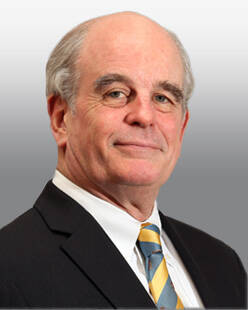
Case Manager: Sejla Garbo
Hon. James J. McBride has served over two decades on the San Francisco bench as Presiding Judge, civil trial judge and a member of the Appellate division. He is recognized in the legal community as being well prepared, a master of difficult and complex jury trials and is equally well-regarded for his talent in bringing forth settlement in even the most demanding of cases.
Judge McBride draws upon a lifetime of diverse experience and expertise: born and raised in San Francisco during a time of great ethnic, economic and cultural transformation; attending UC Berkeley as students led the change in the nation’s perspective of society and politics; and serving the community as a police officer for the San Francisco Police Department.
Now available to serve as a mediator, arbitrator, referee and private judge, Judge McBride continues to serve his beloved community by helping parties resolve their disputes outside of the court system.
“Judge McBride looks you in the eye and tells you what he thinks of the facts and the strengths and risks of a plaintiff’s case. For clients, he doesn’t sugarcoat it in a bunch of legalese.”
“Judge McBride knows how to cut to the heart of matters, and he is not afraid to say when he believes a person’s position needs some altering. He can have a really stern look on his face, and it makes one want to hustle, even though he has a very kind disposition.”
“Judge McBride was so incredibly compassionate about my client’s experience and how they felt about the mediation. He made them feel they were the most important part of the process. They were the decisionmakers.”
“Judge McBride takes a genuine interest in the case and the issues that they’re facing. He asks the right questions, the hard questions, but knows how to ask them in a way that’s productive.”
“Hon. McBride and his staff were very helpful, clear, and effective at setting and conducting this mediation. Thank you!”
“Judge McBride, he still put all his efforts in to find a possible agreement and came up with many creative solutions to get the case moved forward. He treated our clients with respect.”
“Judge McBride was, as usual, prepared and sharply focused to the issue. The neutral was great”
“Judge McBride was quite experienced.”
“Judge McBride is phenomenal. So much easier and effective than Jams. Thanks!”
“Judge McBride listened to our clients’ concerns and our arguments on their behalf and effectively communicated with opposing counsel to help us reach a satisfactory resolution. Overall the process was efficient, professional, and successful.”
